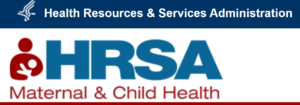The Maternal and Child Health Bureau releases the latest Coronavirus Disease (COVID-19) data partnered with the U.S. Census Bureau on the Household Pulse Survey.
Beginning in April 2021, survey were distributed to understand some of the pandemic’s effects on the health of children under 18 years of age. The survey gathers information on an ongoing basis and releases the data every 2 weeks to provide near real-time information.
The Bureaus are collecting, analyzing, and disseminating data on:
- Children’s use of telemedicine
- Preventive well-child visits
- Disruptions in childcare
The results found that:
Children’s Telemedicine
- Since April 14, 2021, more than 1 in 5 households with children (22-24%) reported that at least one child had an appointment with a health professional by video or phone in the past month. This estimate has remained stable over the past 3 months.
- Prevalence of children’s telemedicine visits varied among states, from a low of 9% of households with children in Ohio and Wyoming to a high of 36% in Washington, DC.
Children’s Missed, Delayed, or Skipped Preventive Check-Ups
- Between May 26 and June 21, 2021, 1 in 4 households with children (25%) reported that at least one child missed, delayed, or skipped a preventive check-up in the past year due to the pandemic.
- The most common reasons for missing/delayed preventive check-ups due to COVID-19 were limited availability of appointments, health care providers’ location being closed, and concerns about visiting health care providers’ location.
Disruptions in Childcare
- Between May 26 and June 21, 2021, almost 1 in 5 households who needed childcare (18%) reported that at least one child was unable to attend daycare or another childcare arrangement in the past month due to the pandemic.
- The most common impacts of childcare disruptions included parents/caregivers cutting their work hours, supervising children while working, taking unpaid or paid leave from work, and leaving a job to care for children.
